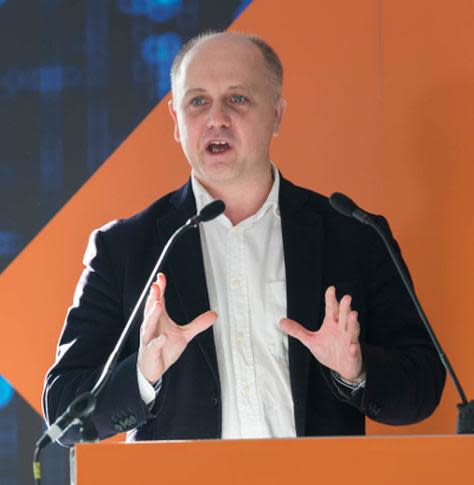How big data can save lives by diagnosing healthcare failings
National Health Service England's Tim Kelsey tells a story of the human cost of mismanaging data.
Some years ago a doctor raised the alarm about a consultant who was ignoring cancer patients referred for treatment: Kelsey said the subsequent inquiry determined the specialist had probably shortened the lives of at least 11 women by not seeing them when he was supposed to.
"The thing that struck me about that tragedy was the enormous human cost that this guy's negligence had caused. But more than that, this could have been stopped almost before it started if the local hospital had actually used the data it had to do something as simple as checking whether or not doctors were seeing their patients," NHS England director for patients and information Kelsey told the WANdisco Big Data Breakfast in London yesterday.
"That is a long way away from the kind of algorithmic excitement over calculating outcomes in healthcare - just incredibly basic manipulation of this data would have saved lives in this case.

NHS England's Tim Kelsey said gaps in healthcare need to be filled.
Image: Paul Clarke
"I just couldn't believe the NHS was flying blind, and as I dug into it more, I began to realise that no doctor had the faintest idea of whether they were harming patients and the patients had literally no transparency over the quality of local services."
Kelsey left his job as news editor for the Sunday Times newspaper and set up a private firm, Dr Foster, to try to offer the public greater insights into the running of the NHS. The company analysed the huge amounts of data produced by the service and used it to generate tables showing death rates by individual hospital and individual doctors.
Today, Kelsey is in charge of devising ways to let doctors and patients tap into the vast NHS datasets to improve national healthcare.
2015 could be a major year for big data in the NHS. This year the government will relaunch care.data, a scheme to allow patient records to be used to improve health services and shared for research purposes.
The programme was put on hold last year after privacy concerns over what the patient data might be used for and where it might end up.
Kelsey acknowledged these concerns had been legitimate and said the new care.data programme would offer "proper legal safeguards" for patient record data.
Several areas of England have been selected to begin extracting and linking patient records from GP surgeries and hospitals.
Creating linked records across the health service is vital for improving care, according to Kelsey.
"I'm sure that most people don't realise the NHS is not currently capable of telling us how many people are treated for chemotherapy, for example, and it's certainly not capable of telling you whether they are treated with a decent outcome," he said.
"There are gaps so big and so dangerous that they have to be filled from a moral as well as a political perspective. So that's what we're going to be doing this year."
Another scheme to help the public understand more about the quality of care is the Friends and Family Test, which allows patients to rate the treatment they received from various NHS services and GP practices. From April this year patients of all NHS dental, doctor and hospital services will be able to use the scheme. The data is published online and made available as .csv files for people to use in applications.
"It's been incredibly interesting watching how Friends and Family Test, this enormous crowdsourcing in England about local services, has already improved public services. There are numerous examples of ways that hospitals have reacted in real time to comments [from the scheme]. This is a huge dataset, unparalleled in the world, that's about to grow exponentially larger and just needs some big data analytics to derive proper insight from it."
One of the true big data challenges being undertaken by the NHS is understanding the genomics of the human body - the function and structure of the genetic material within our cells.
Machines used to monitor athletes' urine and blood samples for drugs during the London 2012 Olympics Games have been modified and are being used as "the first molecular diagnostic machines in the UK", Kelsey said.
"They're actually just looking at the molecular construction and revealing interesting facts," he said.
"A year ago we thought there were 2,000 molecules in urine, now we know there are 10,000. Those additional 8,000 are new to science, we've never seen them before and this machine is beginning to understand them.
"That machine is producing more data per day down at Hammersmith Hospital, than the Large Hadron Collider is - it is a vast, vast dataset."


